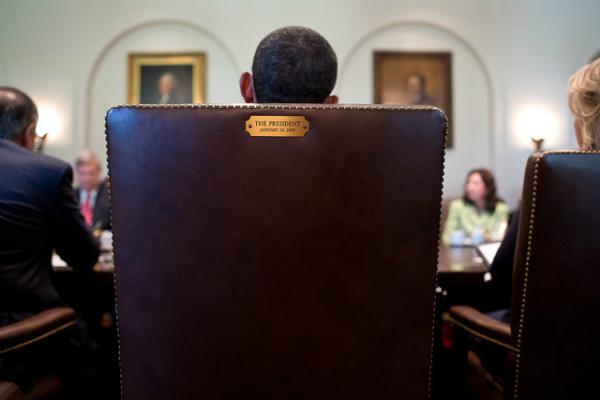President Obama won the election for the same reason George W. Bush was re-elected: Americans overwhelmingly favor the incumbent. Sitting members of the House of Representatives have been re-elected over 85 percent of the time since 1964. For 2012, almost identical numbers of women, Latinos, and young people voted for Obama this year as they did four years ago. While many in the media have blamed the epic Election Day crash of Romney’s volunteer digital ecosystem, “Project Orca,” for his electoral demise (among many other blunders), nothing can compete with the power of a sitting president to command media attention, appear presidential in last-minute crises, and reach voters who supported him four years before.
Since winning the Republican nomination, Romney was in a constant scramble to be on par with Obama’s media dominance. The battle between Romney and Obama for online attention is illustrative of the larger media battle. For instance, with a few easy social media tricks that only a sitting president could have used, Obama stole much of Romney’s online thunder during the Republican National Convention: Obama got millions of people to read the first “Ask Me Anything” from a president on the popular content aggregator, Reddit; he made front page headlines for releasing the official White House beer recipe near Labor Day; and, he scored the most retweeted post of the convention with a clever spoof on Clint Eastwood’s infamous rant at an empty chair:
Even though social media insiders praised Romney’s digital team for impressive Facebook fan growth, the campaign was always a distant second next to Obama’s artful use of the bullypulpit.
Second, during the only event that could eclipse public interest in a presidential election — the catastrophic flooding of two major American cities — all eyes turned to the Commander-in-Chief. Countless people shared inspiring cooperation between noted critic, Governor Chris Christie, and Obama:
Regardless of whether Romney would have done a better job at ending the recession or managing Hurricane Sandy, Americans, on average, tend to give credit to the man in office.
Of course, the incumbency advantage cannot be entirely ascribed to the privileges of elected office. After all, both President Carter and the first Bush were one-term presidents. Being extraordinarily unpopular with a charismatic opponent (Reagan and Clinton) can doom a president. Additionally, political scientists find that congressmen appointed to their position (if, for instance, the current seat holder dies), do not enjoy the same advantage as those who are elected to office.
Elected incumbents enjoy unparalleled preparation time and access to their old supporters. Obama had four years to prep for the 2012 election and millions of contacts waiting to be switched on as volunteers and donors. This last advantage is especially important. For all the bluster about Romney being especially bad at appealing to minorities and women, they voted in almost identical percentages for McCain four years earlier. Overwhelmingly, the most important factor in voter turnout is door-to-door canvassing. Research consistently shows that radio, mail, and TV attempts at persuasion pale in comparison to the personal touch of human being.
Only in unusual cases, like when Rep. Todd Akin offended half the country with his shockingly inaccurate comments about rape, can a wave of bad social media press make a difference — and even then it’s a close race. Attempts at explaining election outcomes through public opinion on issues vastly overestimate how much thought the average voter puts in to his or her decision.
Much fuss has been made about the epic meltdown of Romney’s sophisticated volunteer targeting platform, Project Orca, which went down for a few critical hours on Election Day. Thousands of volunteers, ready to make calls and knock on doors, were left stranded. Orca was a rush job, slapped together in the little time since Romney’s nomination, and never had a chance at being tested at scale. Under those conditions, it’s not a surprise the system experienced issues.
In other words, the election outcome was practically fate. According to The New York Times Election oracle Nate Silver, Obama had almost the same probability of winning the election when Romney was nominated, as he did the month before the election, despite the roller-coaster ride in between.
Campaigns do matter, but if both candidates do their jobs in hiring smart people who work incredibly hard (and they did), then it should be no surprise when the incumbent wins.
